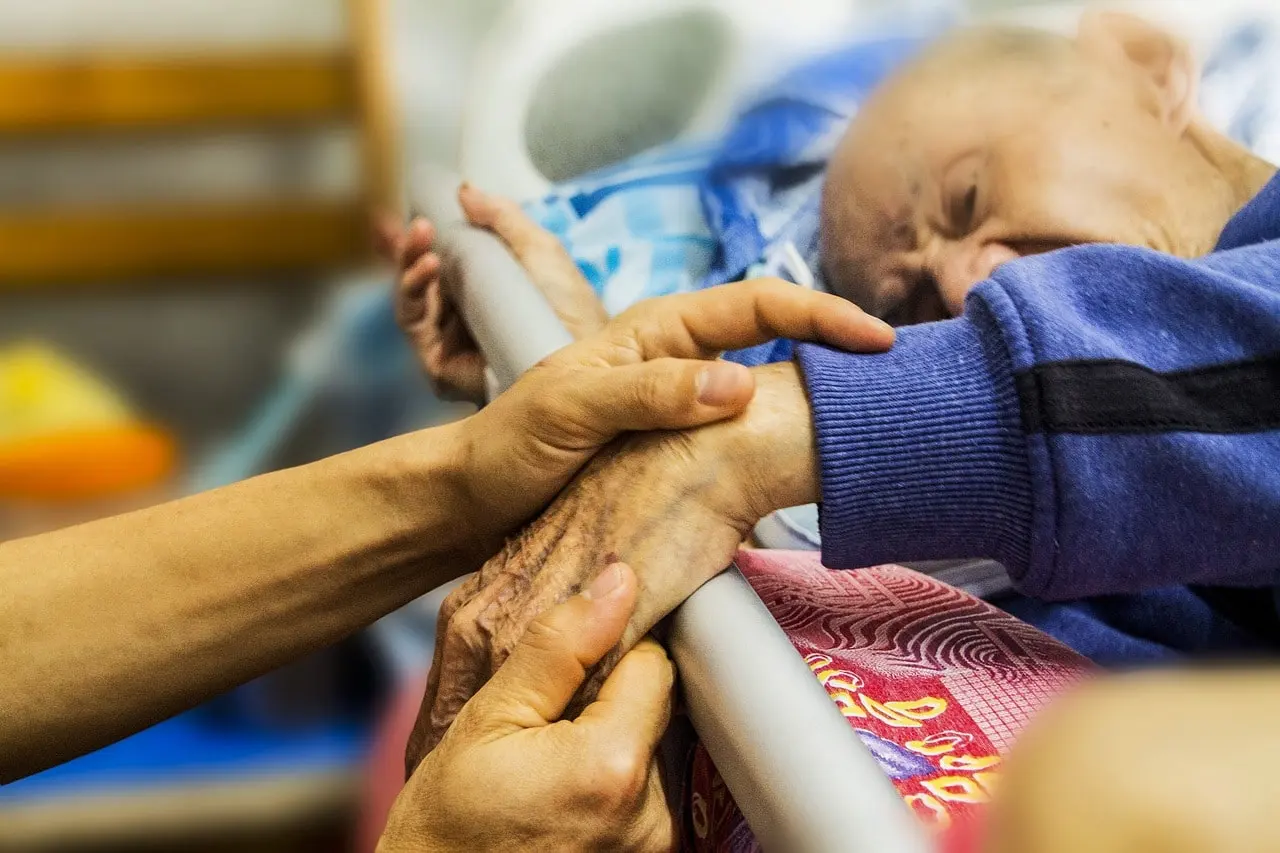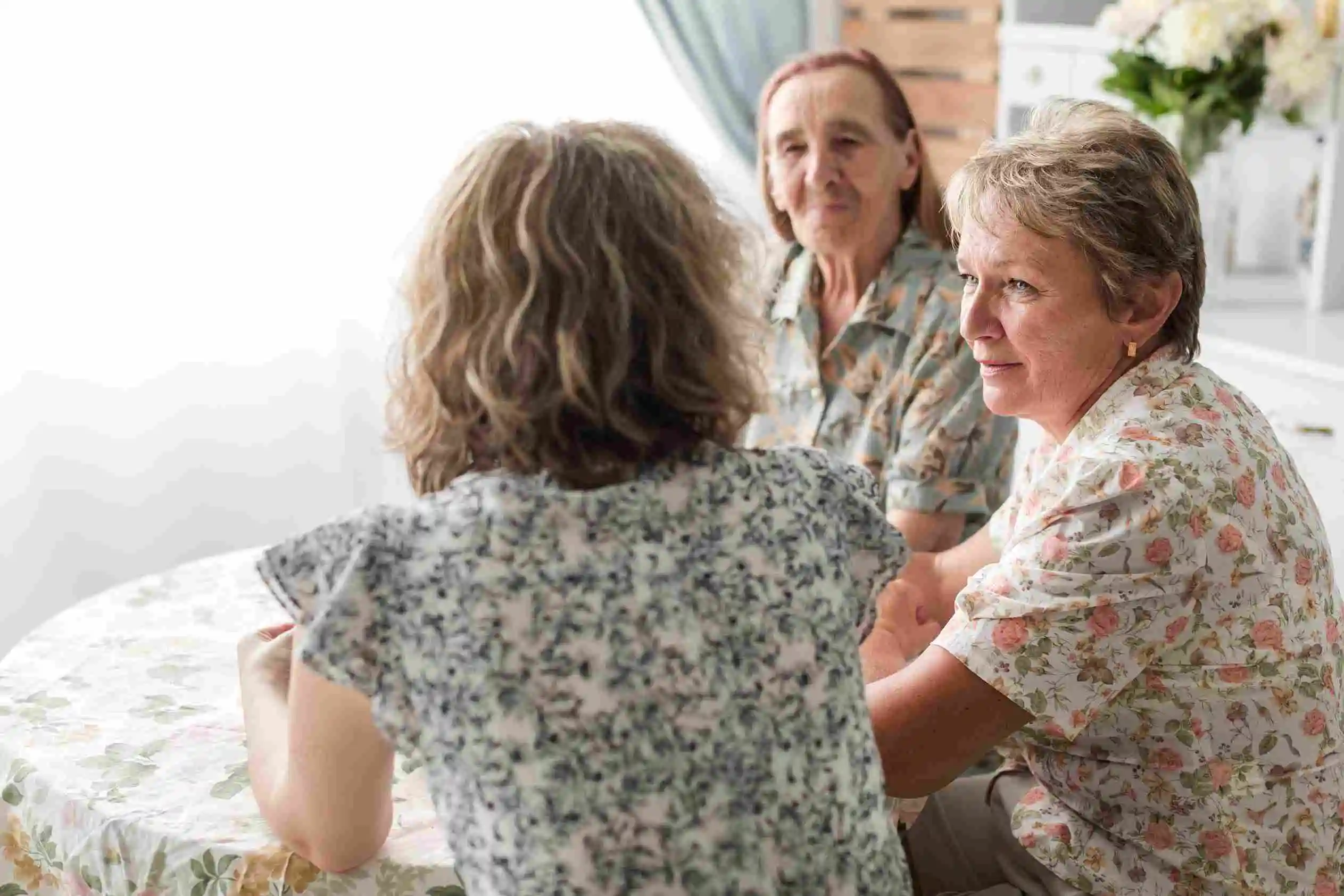Understanding why a hospice patient refuses to eat may be vital to providing compassionate care. Both physical and mental factors often contribute to the decline in the desire to eat, which is an herbal component of the demise method.
This article explores the not unusual motives at the back of the refusal to eat and examines the implications for a patient's last time. How long do hospice patients live without eating? We cope with this question to assist caregivers and loved ones put together for this stage. By knowing those factors, the hospice crew can offer better assistance and luxury to patients and their households.
Why Do Hospice Patients Refuse to Eat?
Physically, the body declines in its need for meals and fluids as a part of the demise manner, decreasing the power required for digestion.
The nutrition impact on survival in hospice patients is complex, as the point of interest shifts from prolonging lifestyles to consolation and exceptional life.
Physical Reasons for Refusal
- Decline in Body Functions: As the frame shuts down, organs require less energy, decreasing the need for meals and fluids.
- Shortness of Breath and Coughing: Difficulty breathing and continual coughing could make eating and drinking uncomfortable and difficult for death sufferers.
- Swallowing Difficulties: Weak muscular tissues and reduced saliva production can cause swallowing difficulties, mainly due to a refusal to devour or drink.
- Digestive System Slowdown: The digestive machine's reduced pastime makes it harder for the body to process meals, causing discomfort and a lack of urge for food.
- Nausea and Vomiting: Common in advanced illness, those signs and symptoms can extensively deter sufferers from consuming.
When a hospice patient stops eating and drinking, it can be due to those physical, psychological, and emotional elements. Understanding those reasons allows caregivers to provide better aid and comfort to death sufferers.
Psychological and Emotional Factors
- Depression: A hospice patient may additionally stop consuming due to feelings of unhappiness, hopelessness, and loss of interest in food because of despair.
- Acceptance of Death: As part of the dying method, patients may additionally evidently lose the preference to eat or drink, spotting their body's decline.
- Emotional Distress: Anxiety, worry, and emotional aches can reduce the urge for food and the need to eat meals or fluids.
- Loss of Pleasure in Eating: The leisure of ingesting diminishes, often due to modifications in taste or the overall physical circumstance.
The hospice team is aware of those psychological and emotional reasons and works to provide compassionate support for the duration of the death method

How Long Do Hospice Patients Live Without Eating?
The duration hospice patients live without consuming varies, usually starting from some days to multiple weeks, depending on their overall health and sickness progression. Dying patients with superior ailments may also continue to exist for around 10 to 14 days without meals, even though a few may also skip away sooner or live slightly longer. This timeline is particularly person , reflecting the unique occasions of each hospice-affected person.
Factors Influencing Survival
The duration of time a hospice patient can stay without food and water is encouraged through several factors, together with their normal fitness and hydration degrees. Adequate hydration can lengthen survival more than vitamins alone, as the body can dehydrate fast. When a hospice patient stops eating, their present frame fats and muscle groups can temporarily sustain them.
The nutrition impact on survival in hospice patients is good sized, as malnutrition weakens the body's ability to function. Terminal ailments regularly lessen the frame's capacity to absorb and utilize nutrients, in addition to affecting survival. Each affected person's enjoyment varies, highlighting the importance of individualized care and attention to nutrients and hydration wishes in hospice care.
Role of Healthcare Professionals
Healthcare specialists play an important role in managing signs and symptoms and presenting comfort care to hospice sufferers. Their expertise in pain management, medicine management, and emotional support ensures that sufferers enjoy the highest first-rate of existence possible. The hospice group, such as docs, nurses, and therapists, works collaboratively to address physical, emotional, and spiritual needs.
Support healthcare professionals provide extends to own family individuals, guiding them through the tough journey of end-of-life care. By prioritizing consolation and dignity, healthcare specialists make a great difference in the lives of hospice sufferers and their loved ones.
Practical Tips for Caregivers
The main recommendations during the dying process for a hospice patient:
- Offer Small Comforts: Provide ice chips or a damp sponge to moisten the hospice patient’s lips and mouth, ensuring comfort even if they refuse food and water. This small act can help alleviate dryness and discomfort during the dying process.
- Respect Their Wishes: Understand and respect the patient's decisions regarding food and fluids. Communicate with the hospice team to ensure that the patient’s preferences are honored and that they receive appropriate family caregiver support.
- Monitor Symptoms: Keep an eye on symptoms like pain, agitation, or breathing difficulties, and report them to healthcare professionals promptly. Effective symptom management is crucial for the patient’s comfort and peace.

Alternatives to Natural Eating: Artificial Nutrition and Its Impact
Artificial nutrient alternatives, which include feeding tubes, offer vital guidance for individuals not able to consume meals evidently, making sure they acquire vital nutrients regardless of intense scientific situations.
The moral concerns and choice-making procedure involved in implementing those techniques regularly require evaluating the affected person's excellent life and long-term period analysis, which can substantially have an effect on the menu expect in an ordinary remedy method.
Understanding Artificial Nutrition
Artificial nutrients entail presenting vitamins at once to the frame through methods that include intravenous feeding or a feeding tube, bypassing the need for oral consumption. It is frequently considered for sufferers who are not able to devour due to clinical situations like excessive gastrointestinal disorders, stroke, or superior cancers. The synthetic nutrients that affect survival hospice sufferers enjoy can vary, with a few seeing prolonged lifestyle expectancy even as others won't see widespread benefits.
In hospice care, particularly in a hospice home setting, the decision to apply synthetic nutrients is complicated and revolves around the affected person's comfort and first-rate existence. Feeding tubes can be a vital choice for those in important want, but they'll additionally gift challenges, inclusive of pain or infection dangers.
Managing Symptoms When a Patient Stops Eating
When a hospice patient stops consuming and ingesting, coping with symptoms like shortness of breath and coughing becomes essential. Comfort care measures, which include administering medications to ease respiratory symptoms and offering humidified surroundings, can extensively alleviate these signs.
The hospice team and circle of relatives can also provide frequent oral care and position the affected person to decorate respiratorily, ensuring that symptoms of shortness of breath and coughing are minimized.
What to Expect: The Dying Process
During the demise method, family contributors can expect to witness ordinary degrees which include withdrawal from the external global, reduced intake of meals and fluids, changes in respiratory patterns, and eventual unresponsiveness, all of which characterize the body's sluggish shutdown and education for death.
Communication with the Hospice Team
Staying in close communication with the hospice team is critical for making sure that the affected person gets customized care and that their symptoms are managed correctly. Support from healthcare professionals can provide families with the necessary steerage to navigate the emotional and practical demanding situations of giving up-of-existence care.
A continuous dialogue with the hospice crew additionally helps in making knowledgeable decisions that align with the patient’s desires and enhance their normal comfort and quality of life.
Preparing for Bereavement
Preparing emotionally for the loss entails acknowledging your feelings, looking for an open verbal exchange with cherished ones, and permitting yourself to grieve obviously. Utilizing grief bereavement sources together with counseling, assisting businesses, and online boards can offer important emotional help. Additionally, family caregiver support offerings offer sensible advice, respite care, and emotional help to assist caregivers navigate this challenging time.
Understanding the natural decline in nutrition during the end-of-life phase is crucial, as it helps caregivers and family members provide appropriate support and comfort. Resources such as grief counseling and support from family caregivers are essential to navigating the emotional challenges of this time.

















.webp)




.webp)


